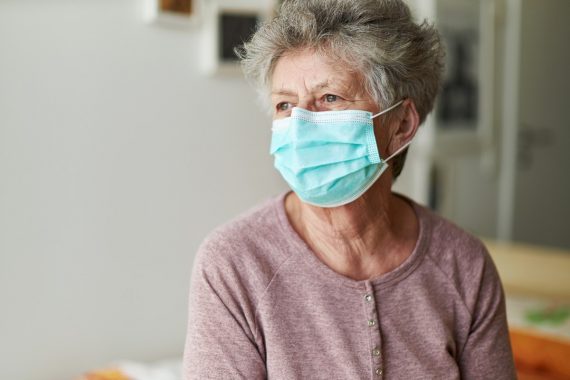GPs could be delivering Covid variant booster shots ‘later this year’

GPs could be administering Covid variant ‘booster shots’ later this year if new strains make this necessary, as the UK Government has placed an order for an initial 50 million doses of modified vaccines.
The Government has signed an agreement with vaccine manufacturer CureVac to ‘rapidly develop new vaccines’ based on messenger RNA (mRNA) technology.
It has placed initial order for 50 million doses of new vaccines ‘to be delivered later this year if they are required’, the Government’s announcement said.
This comes as the vaccines minister has said the UK’s pharmaceutical partners may be able to develop a modified vaccine in as little as 30 days from a new strain being genetically sequenced.
An expert advisory group will also be set up to ‘identify the variants that the UK could need vaccines against’.
However, the Government reiterated that both the Pfizer/BioNTech and Oxford/AstraZeneca vaccines – currently deployed in the UK – seem effective against current virus variants dominant in the country.
The Government’s statement said that ‘almost all vaccines developed through this partnership against new Covid-19 strains will be variants of an existing jab by CureVac which is currently undergoing Phase 3 clinical trials’, meaning that ‘it should be possible to accelerate clinical trials ahead of submission to the regulator for approval’.
‘The process is similar to the method used to update flu vaccines each year – updated and accelerated using the newly-proven mRNA technology that can be reformulated against variants more quickly than older and more traditional vaccine technologies,’ it added.
Both the Pfizer and Moderna vaccines currently approved for use in the UK use mRNA technology.
Vaccines minister Nadhim Zahawi said yesterday that new variant vaccines could be ready for manufacture within ‘30 to 40 days’ from the sequencing of the mutation.
He told MPs in the House of Commons: ‘The manufacturers are already working on variants to their vaccine to take into account the mutation of the virus.
‘When I spoke to the Science and Technology Committee a few weeks ago, I said that we were planning to have in place the ability to go from the moment that we can sequence a variant that we are really concerned about to the moment that we can have a vaccine ready in between 30 to 40 days, with then, of course, the manufacturing time.’
Meanwhile, Public Health England this week suggested that those who have already received their first dose of the vaccine will not need to restart the course if a modified vaccine is needed.
Speaking at the Downing Street press briefing on Monday, PHE senior medical adviser Professor Susan Hopkins said: ‘In terms of the tweaked vaccine, we’re already looking at what mutations are particularly common that might be important to be put into a tweaked vaccine.
‘It is unlikely that people would have to start again, much more likely that it would be a booster shot, a bit like the annual flu vaccine.’
A new strain of Covid was identified in the UK in December and the Government has this week begun door-to-door testing in areas most affected by the South African variant.
Deputy chief medical officer Professor Jonathan Van-Tam said: ‘While the vaccines currently being deployed in the UK appear to work well against the Covid-19 variants currently dominant in the UK, the virus continues to mutate and it is likely that our vaccines will have to adapt to continue to offer the best possible protection.
‘Being able to create these new vaccines at speed will allow our scientists to keep ahead of the virus as they do every year with the influenza vaccine.’
The Government added that the CureVac partnership will allow the UK to ‘boost’ its capacity to develop and manufacture variant vaccines domestically.
And Oxford University researchers this week said they hope to report on data regarding the new variants in the coming days, with findings expected to be ‘broadly similar to those already reported by fellow vaccine developers’.
Meanwhile, a recent report has shown that cough, fatigue, sore throat and muscle pain may be more common in those testing positive for the new variant of coronavirus.
Visit Pulse Reference for details on 140 symptoms, including easily searchable symptoms and categories, offering you a free platform to check symptoms and receive potential diagnoses during consultations.
Related Articles
READERS' COMMENTS [2]
Please note, only GPs are permitted to add comments to articles












No wonder the public are anti-GP. Every NHS bulletin has your name on it. As does every complaint. Funny that direct correlation. Be careful of their distractions, not everything is covid.
i’m not sure how true this headline will turn out to be.
now that vaccination is beginning to take effect, we can (hopefully) anticipate covid easing off a bit.
the treadmill is likely to slow down a bit – enough for a lot of GPs to have a hard look at their lifestyle, and specifically their “employer’s” attitude to their health, and their working conditions.
i’m sure several will say “enough is enough” and either get out altogether, or at least reduce their hours.
which begs the question – who will the government bully into being their whipping boy next time round. ?
form an orderly queue please – i personally won’t be in it after the disgraceful way they have treated us.